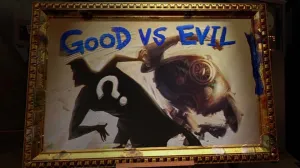By now, the problems littering the anime and manga industries are hardly secret. From insane overtime to unlivable wages, the two industries have faced increased scrutiny as of late as they’ve exploded in global popularity. From big-time creators to lesser-known authors, no one is exempt from the chaos. And now, the author behind Somali and the Forest Spirit is airing their grievances with the industries as they are now struggling to pay for utilities.
Videos by ComicBook.com
The update comes from Yako Gureishi, the author of Somali. Taking to Twitter, the creator admitted they had issues with the anime take on Somali saying they were frustrated with the end product. As they were tied up in hectic manga deadlines, much of the Somali anime lacked Gureishi’s supervision, and one consequence of this was the anime’s mispronunciation of ‘Somali’ in several episodes.
“Regarding the intonation of ‘Somali’ in Somali and the Forest Spirit, it was actually incorrect. I happened to notice it when the voice actor said it, but several episodes had already been recorded, and I trusted the staff I had been working with for many years, so the discovery was delayed,” they shared (via Anime Hunch).
“It wasn’t a suitable environment to point it out because there were many people around. Moreover, there was an assigned editor whom I had been having meetings with for years, and they should have been aware of the correct intonation, but the correction wasn’t made, and that was frustrating. I’m filled with regret.”
These days, Gureishi says they cannot watch Somali’s anime at all. And of course, there is also the issue of the Somali manga to address. Despite its popularity with fans, Comic Zenon put Gureishi’s manga on hiatus for two years before suddenly canceling it outright in2020.
According to the author, Comic Zenon did this to focus efforts on contemporary stories as opposed to fantasies. This decision, they say, comes from a larger issue in the manga industry. Gureishi went on to say the profession treats creators as simple commodities, and many are ostracized in the industry unless they are bestsellers. “”I refuse to let someone exploit me and use me up. I am not a commodity,” they shared. “I am firmly committed to changing the current plight of manga artists, ensuring that they are no longer treated as expendable resources.”
At this time, Gureishi is hopeful they can continue Somali and the Forest Spirit elsewhere, but money is too tight to pursue such a dream. The author says they cannot even afford their utility bills these days, and fans are now rallying behind Gureishi as they navigate this rough patch.
What do you make of this creator’s take on the anime and manga industry? Share your thoughts with us in the comments section below or hit me up on Twitter @MeganPetersCB.








